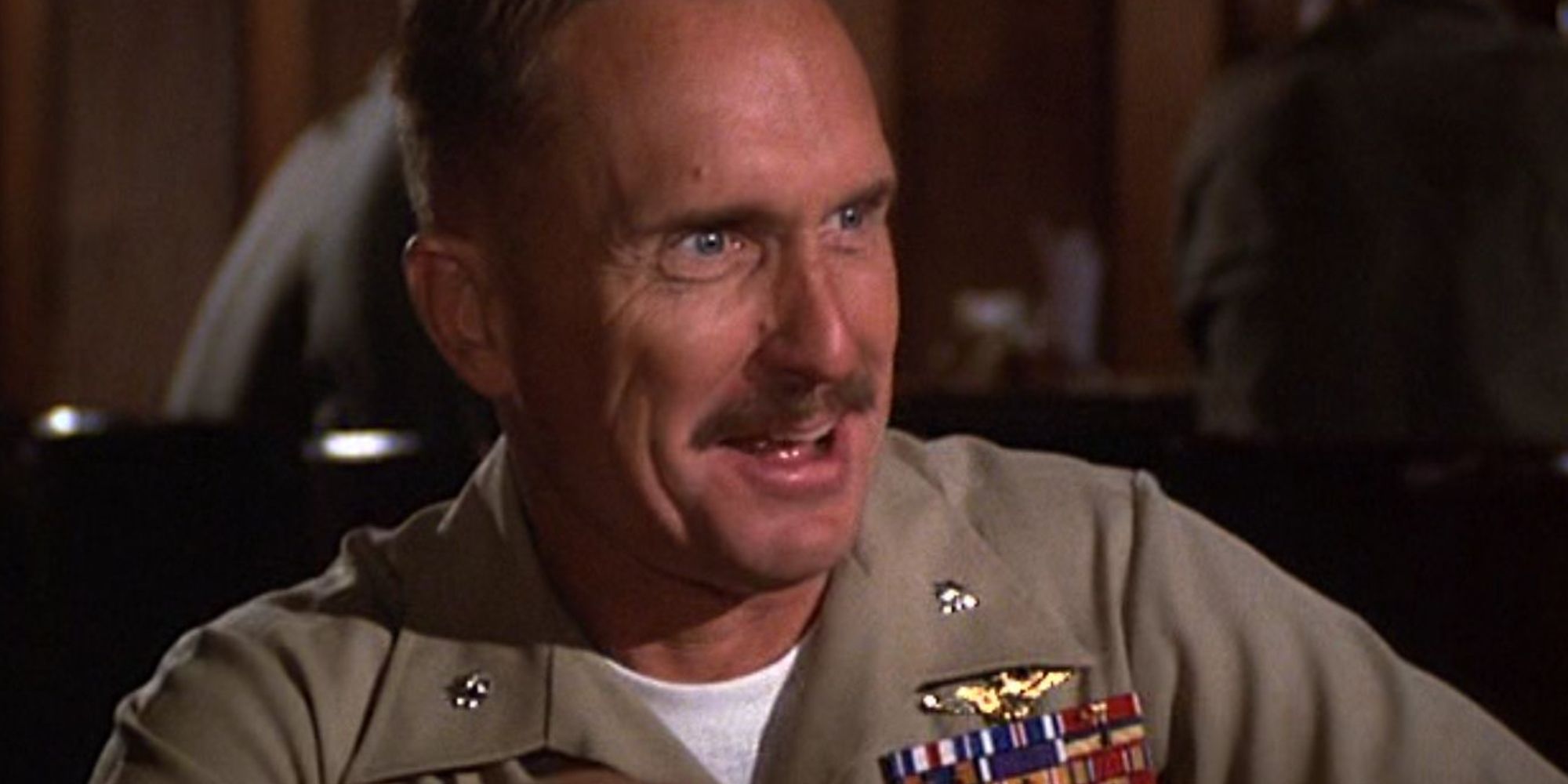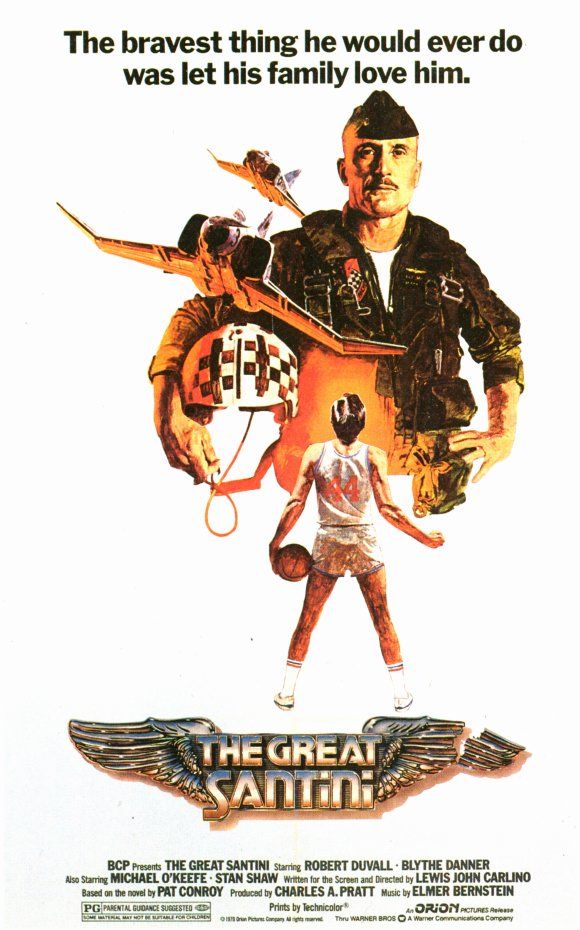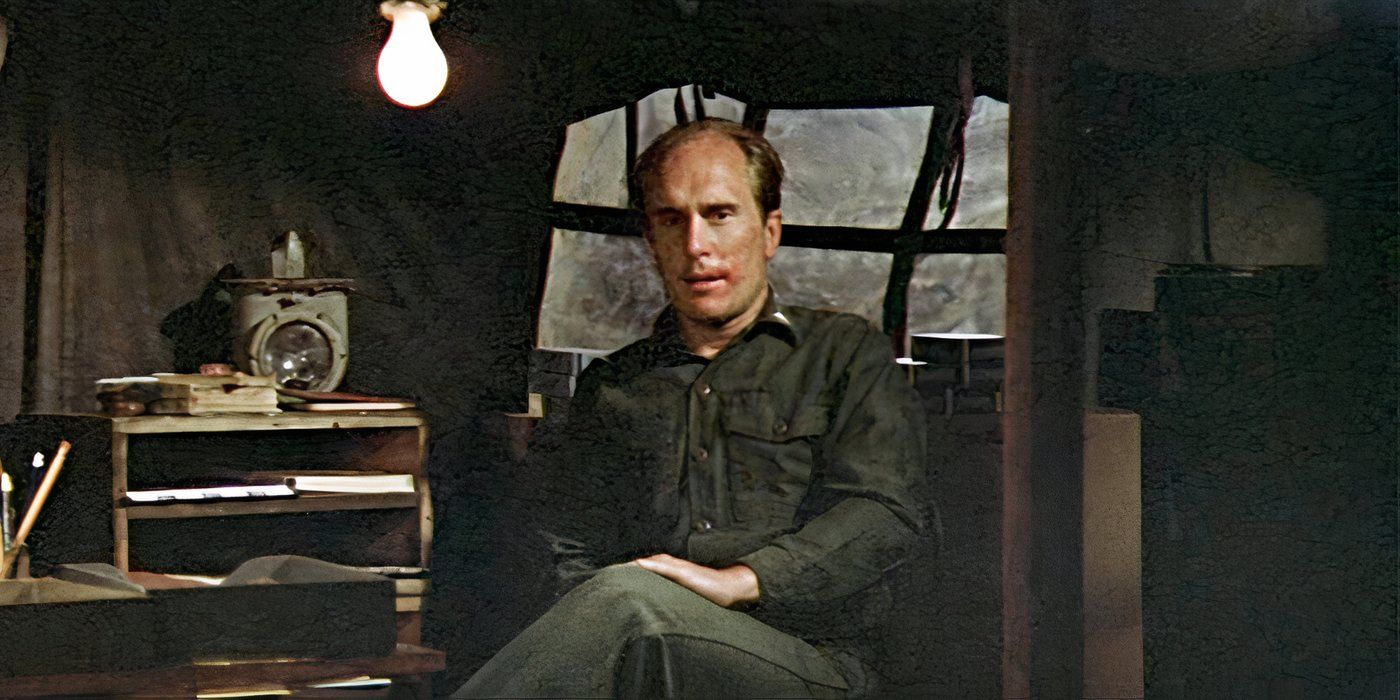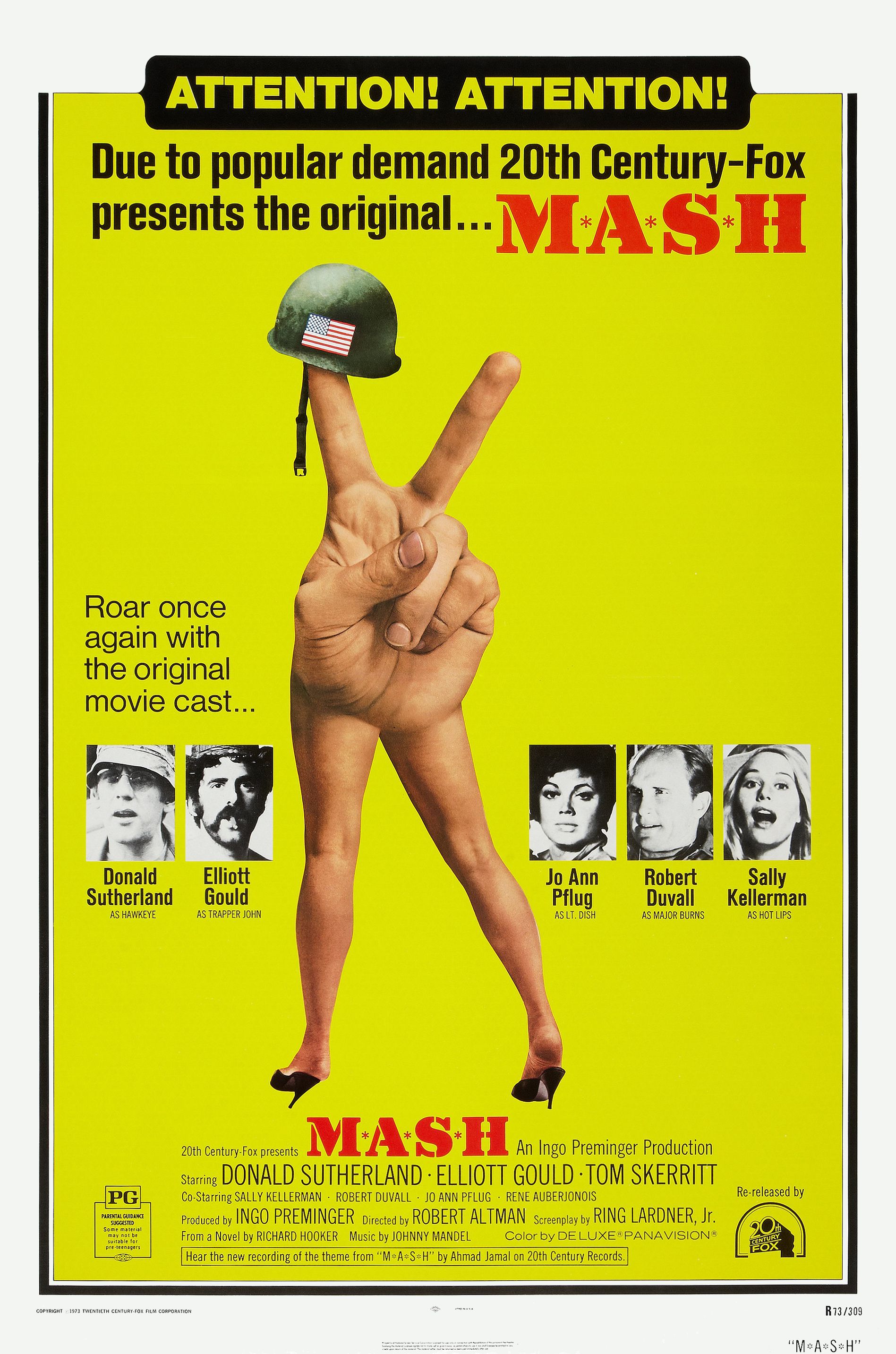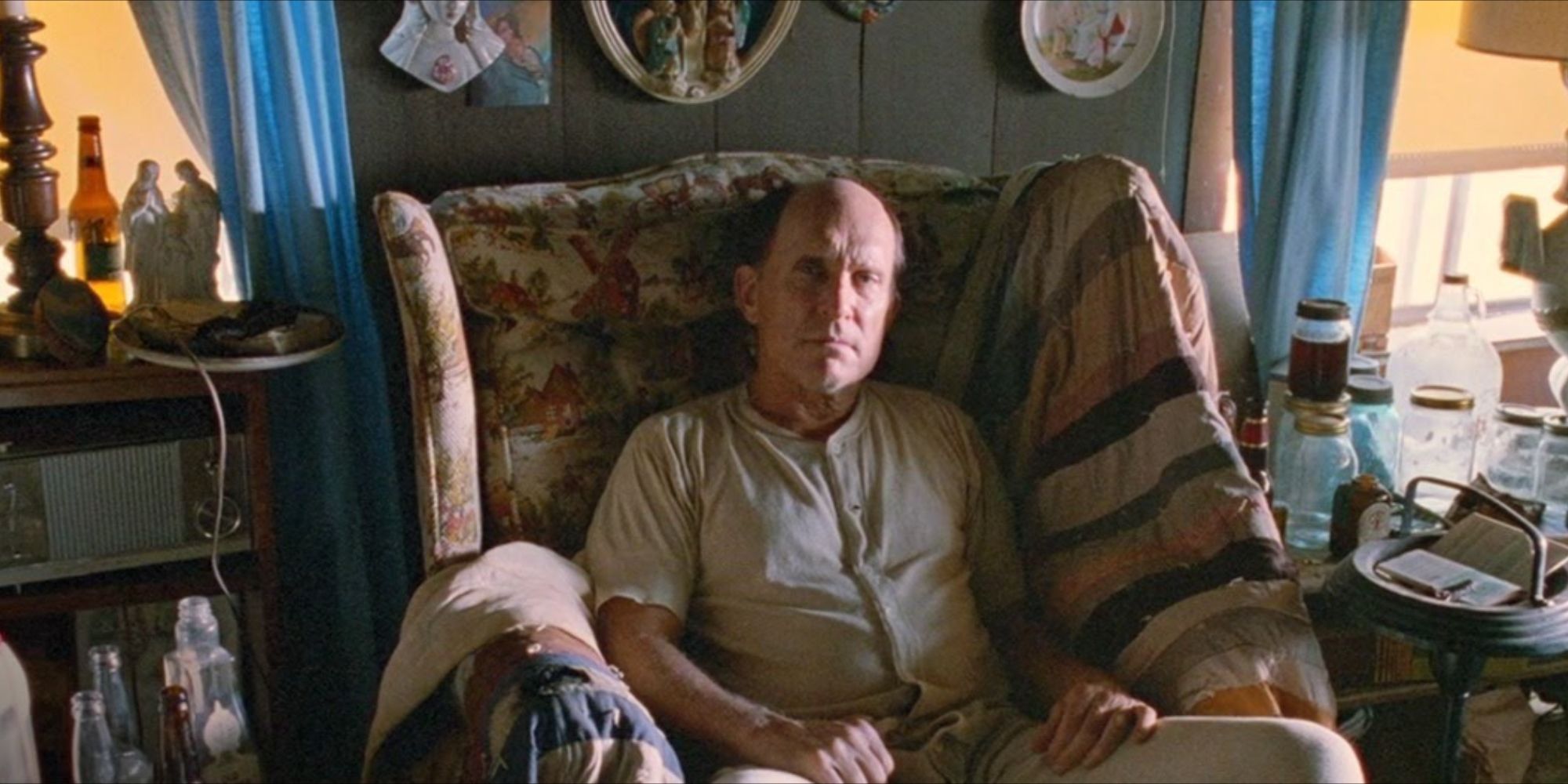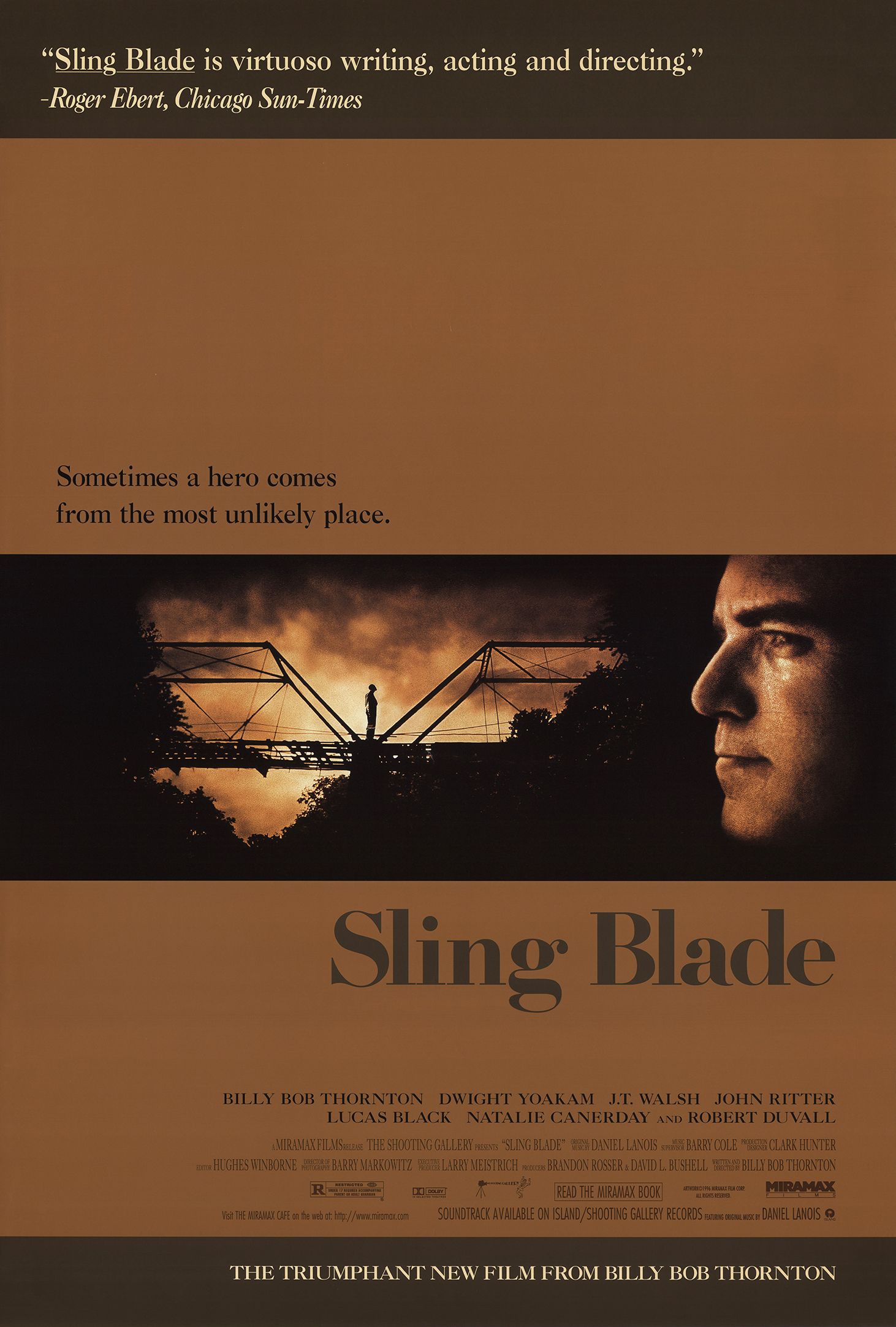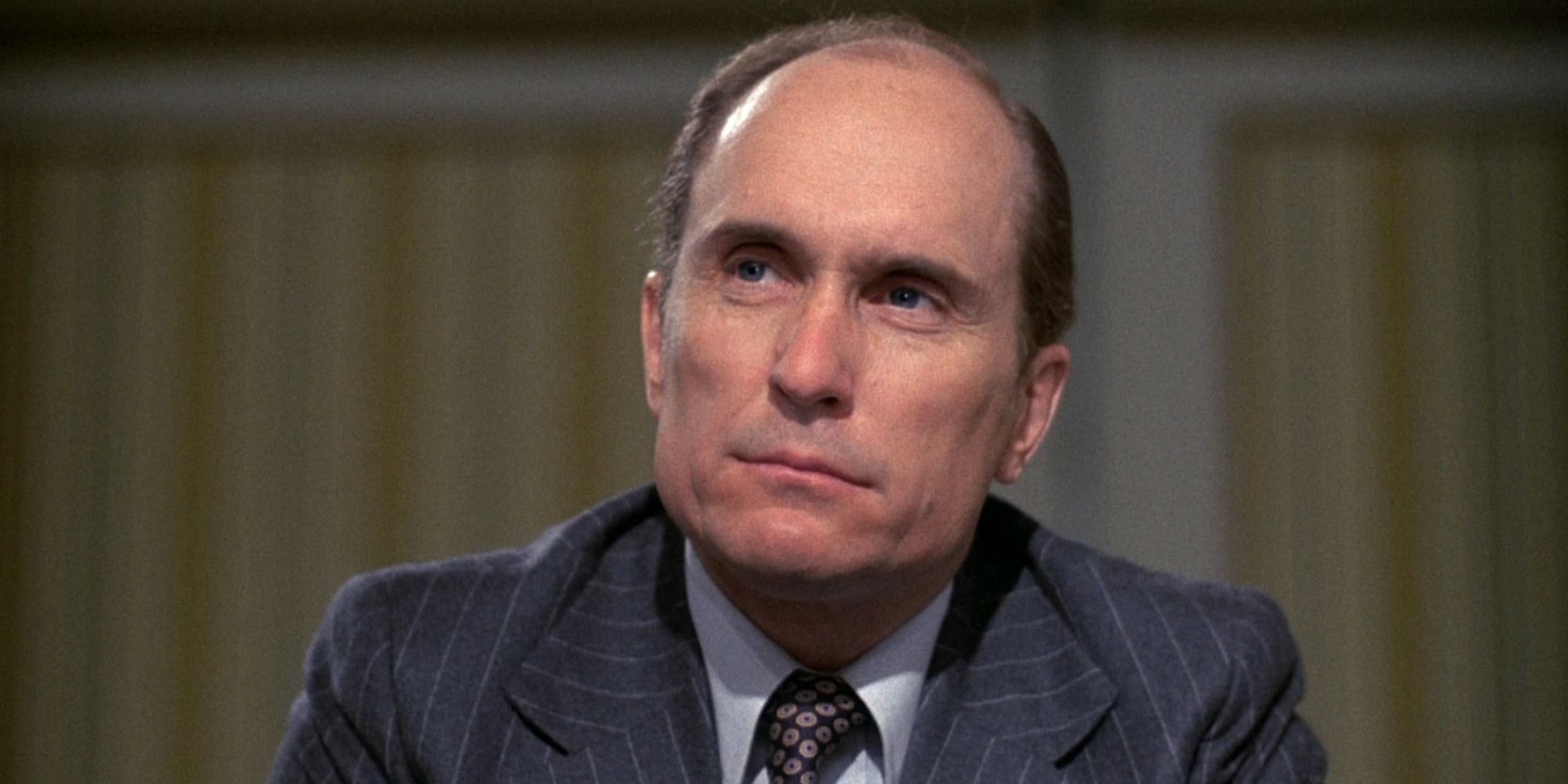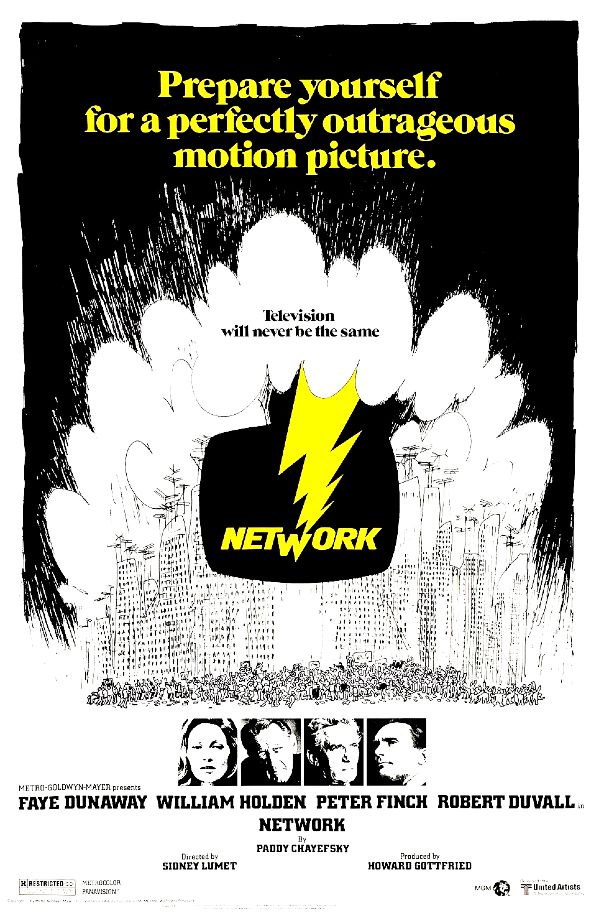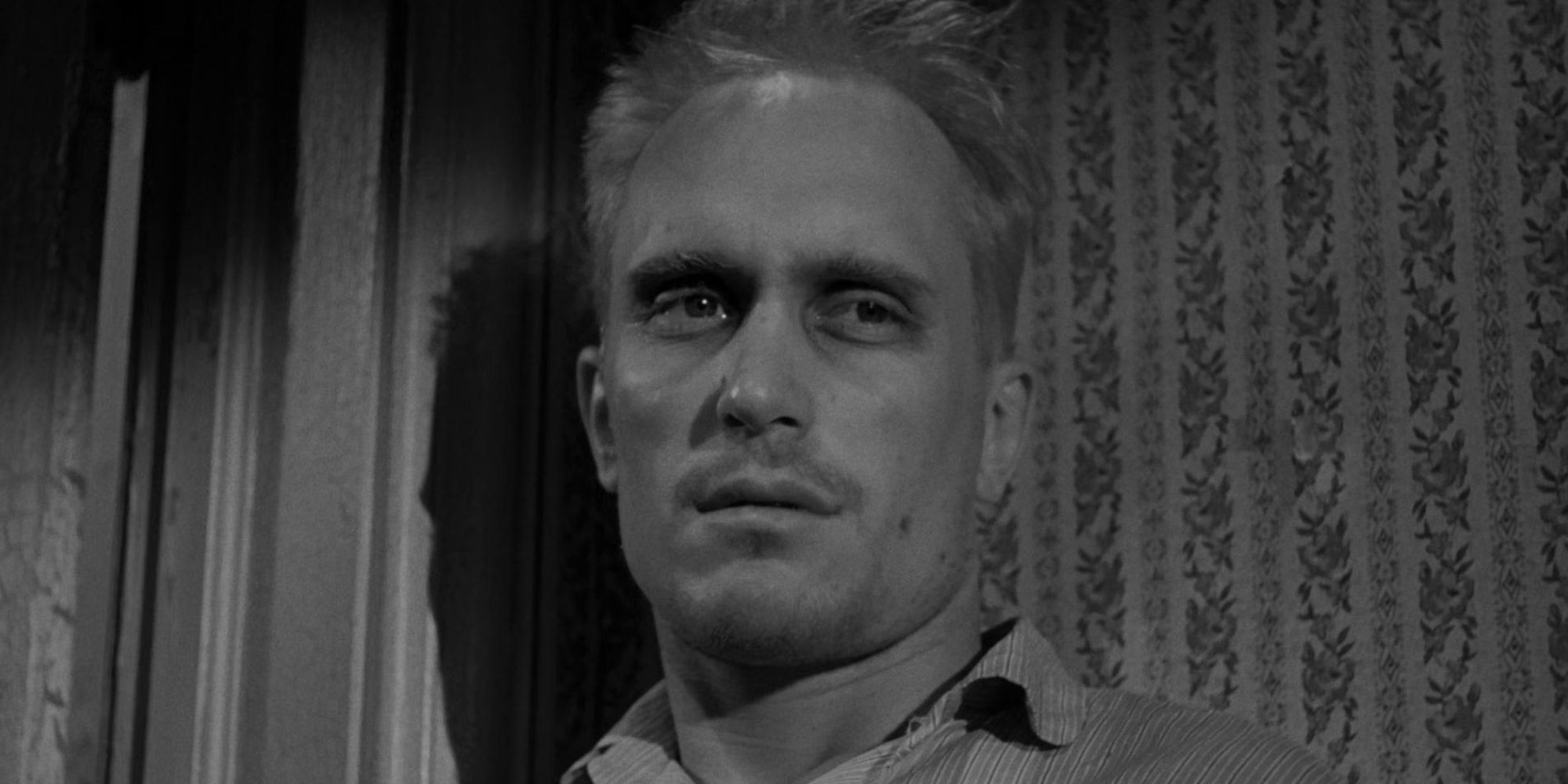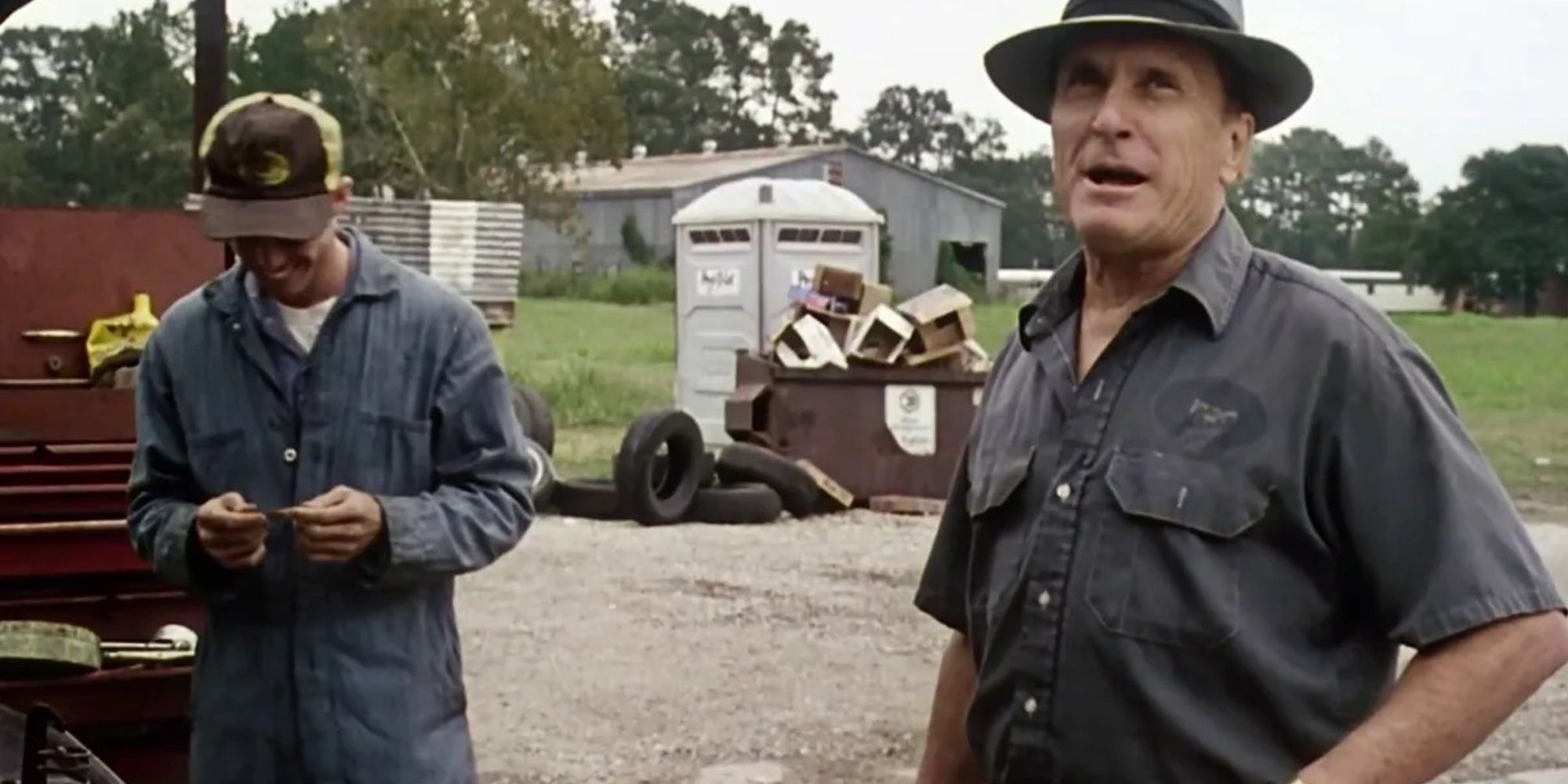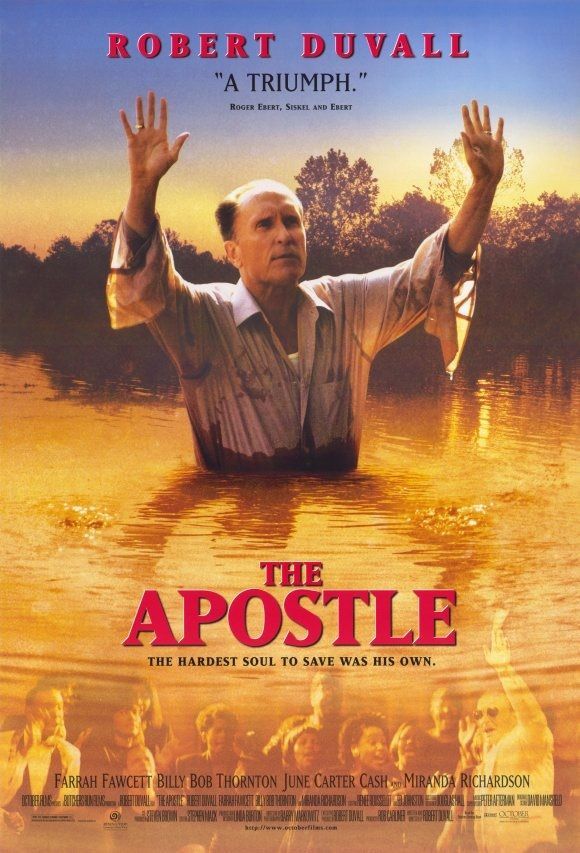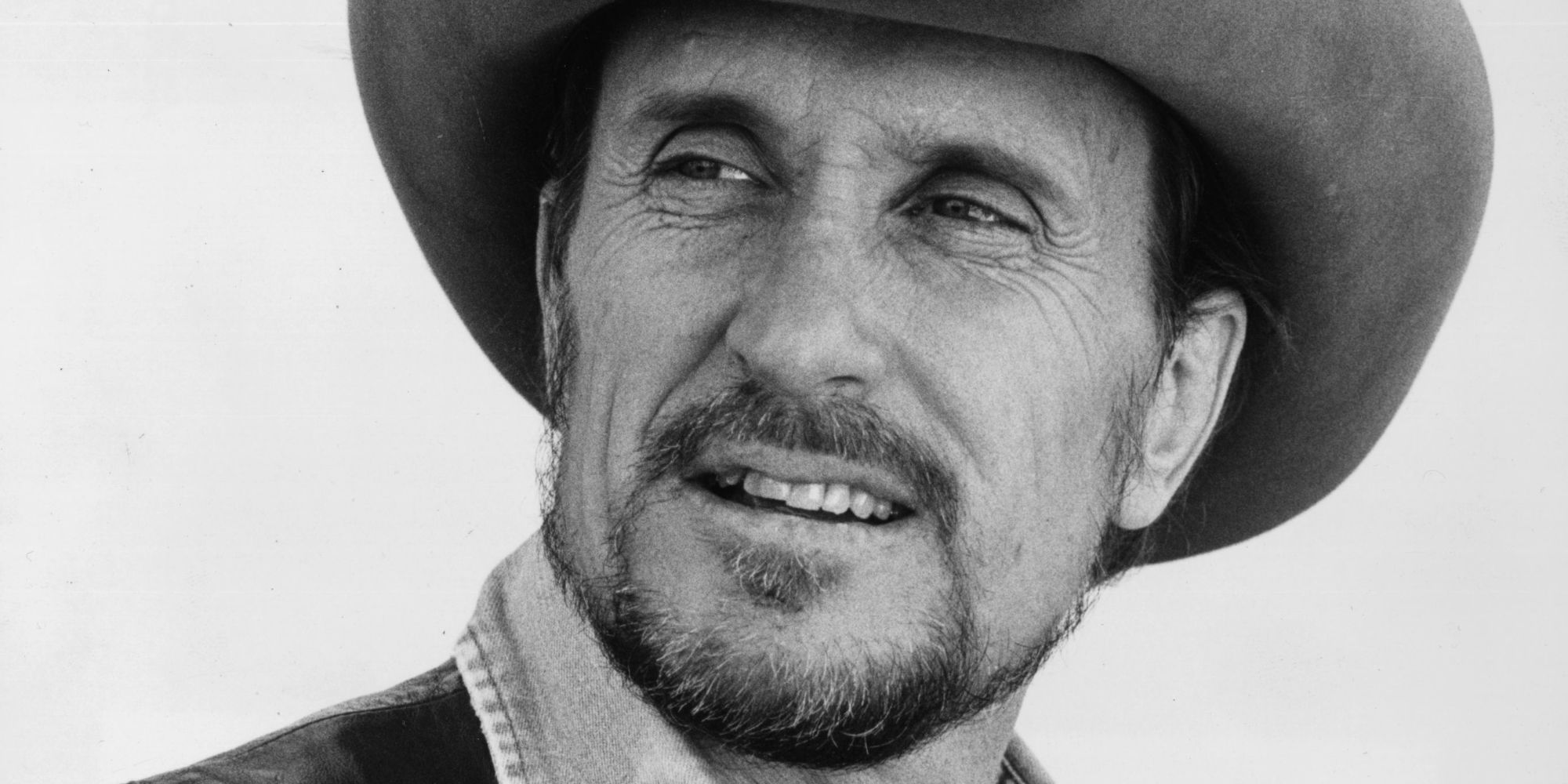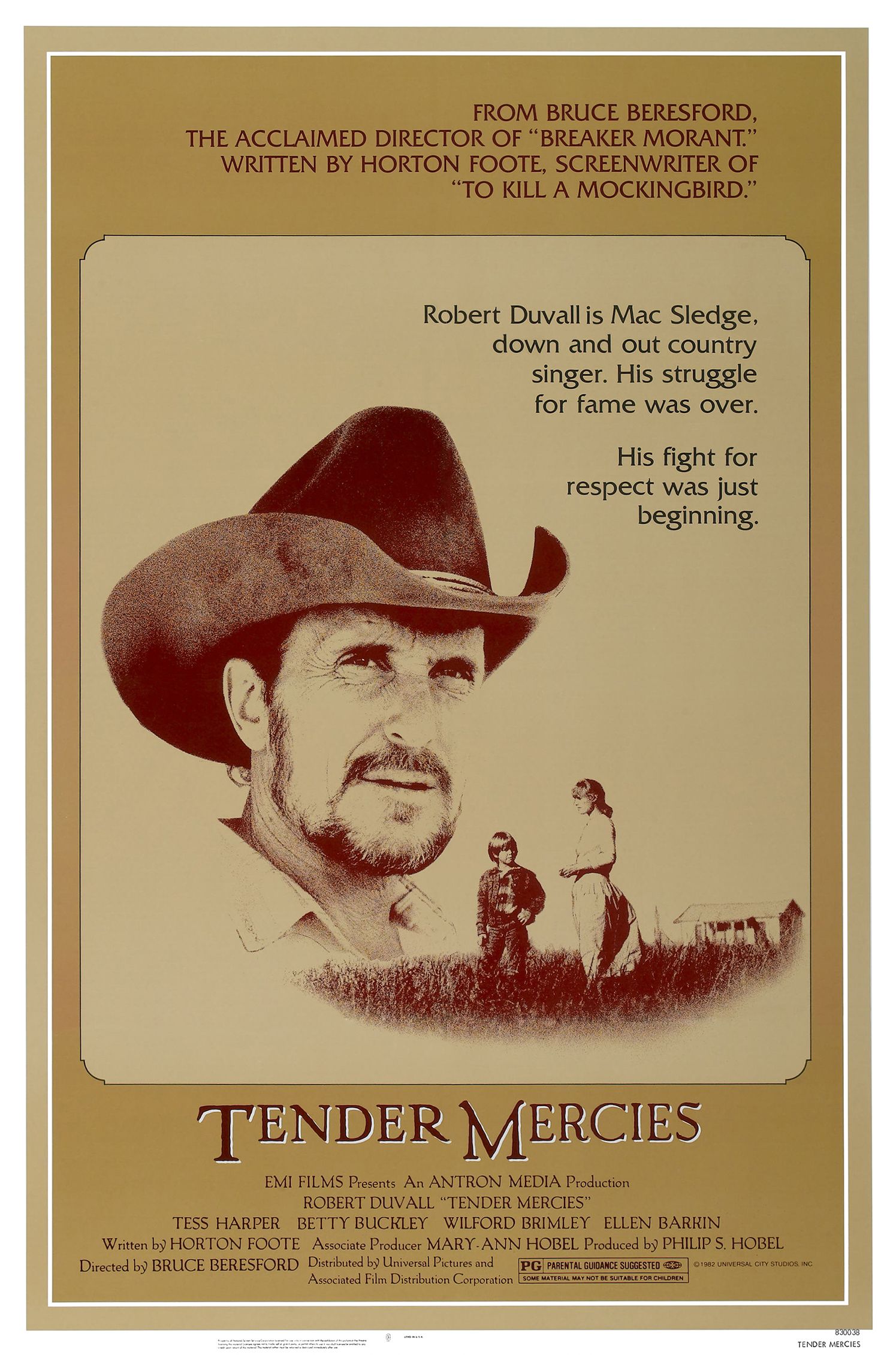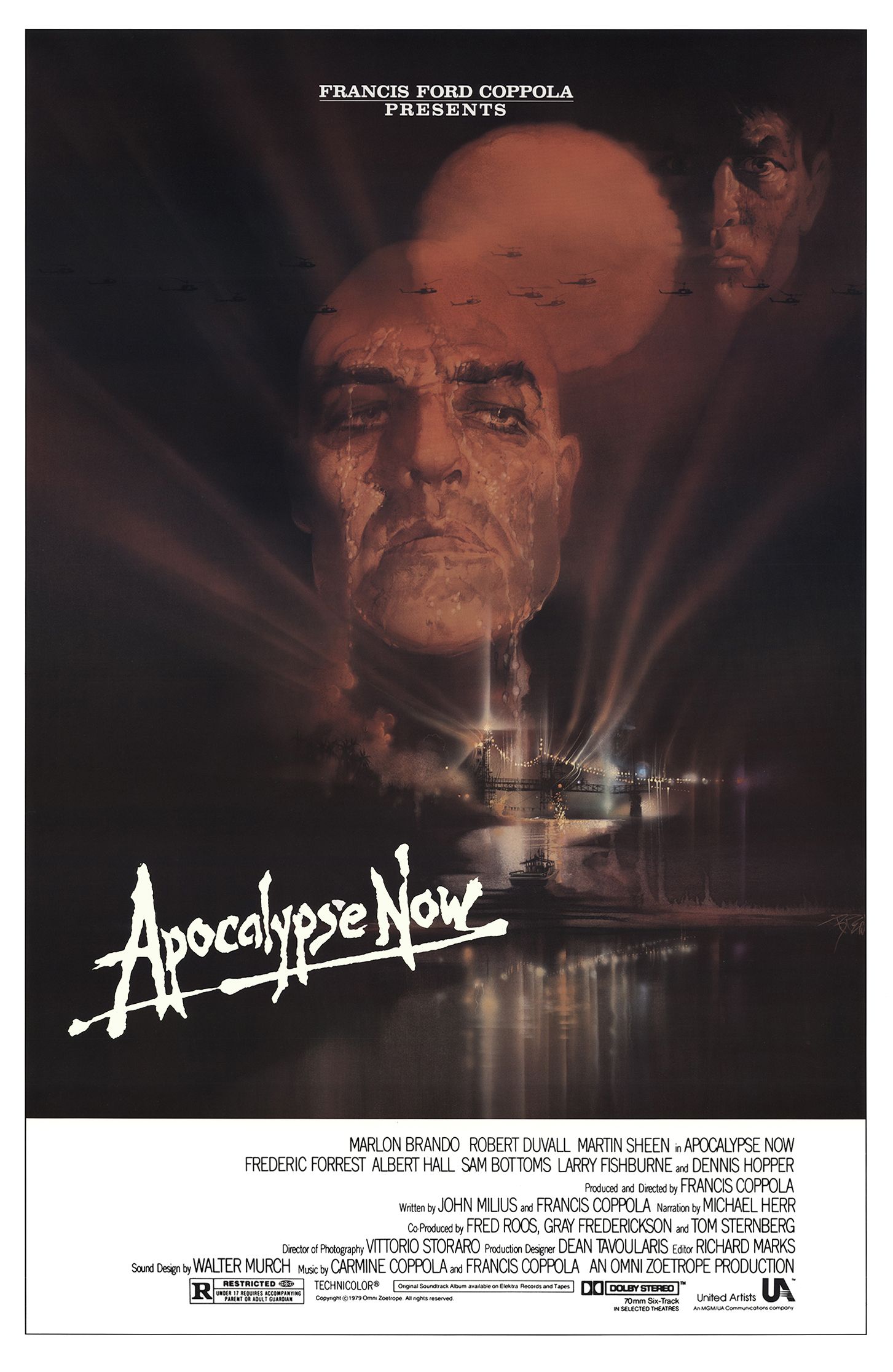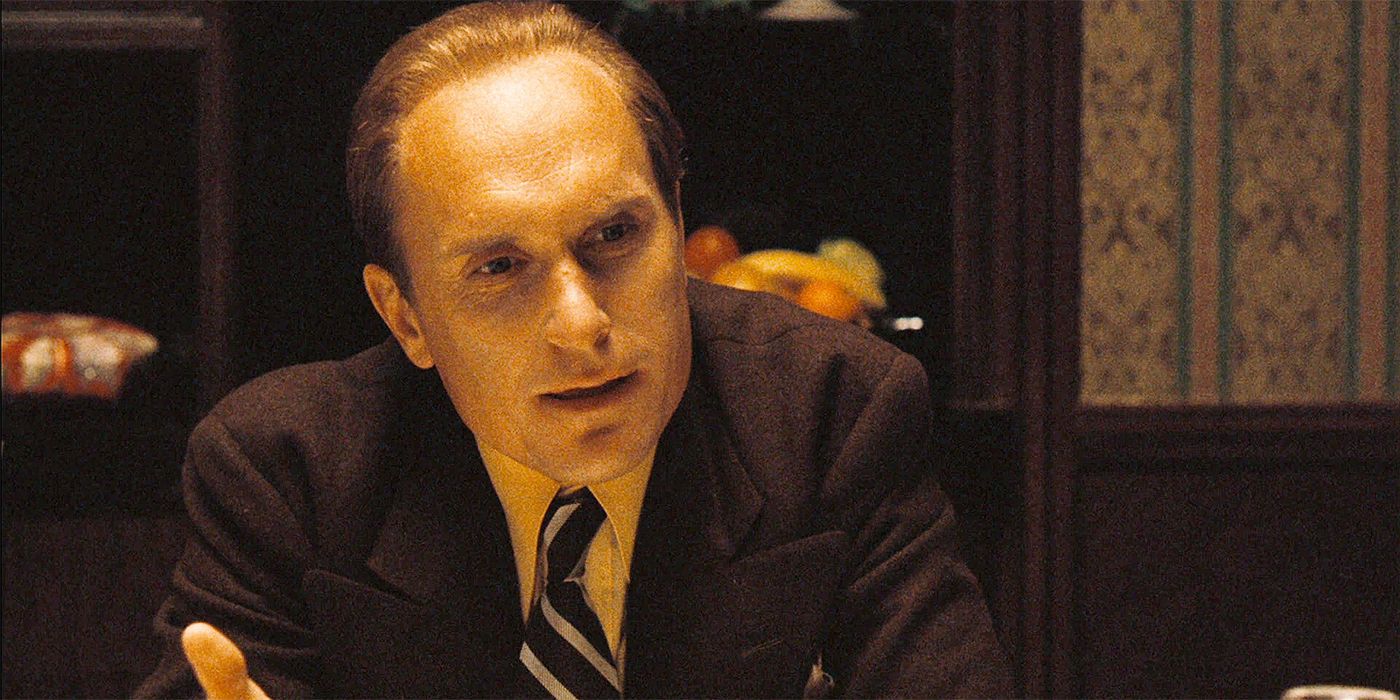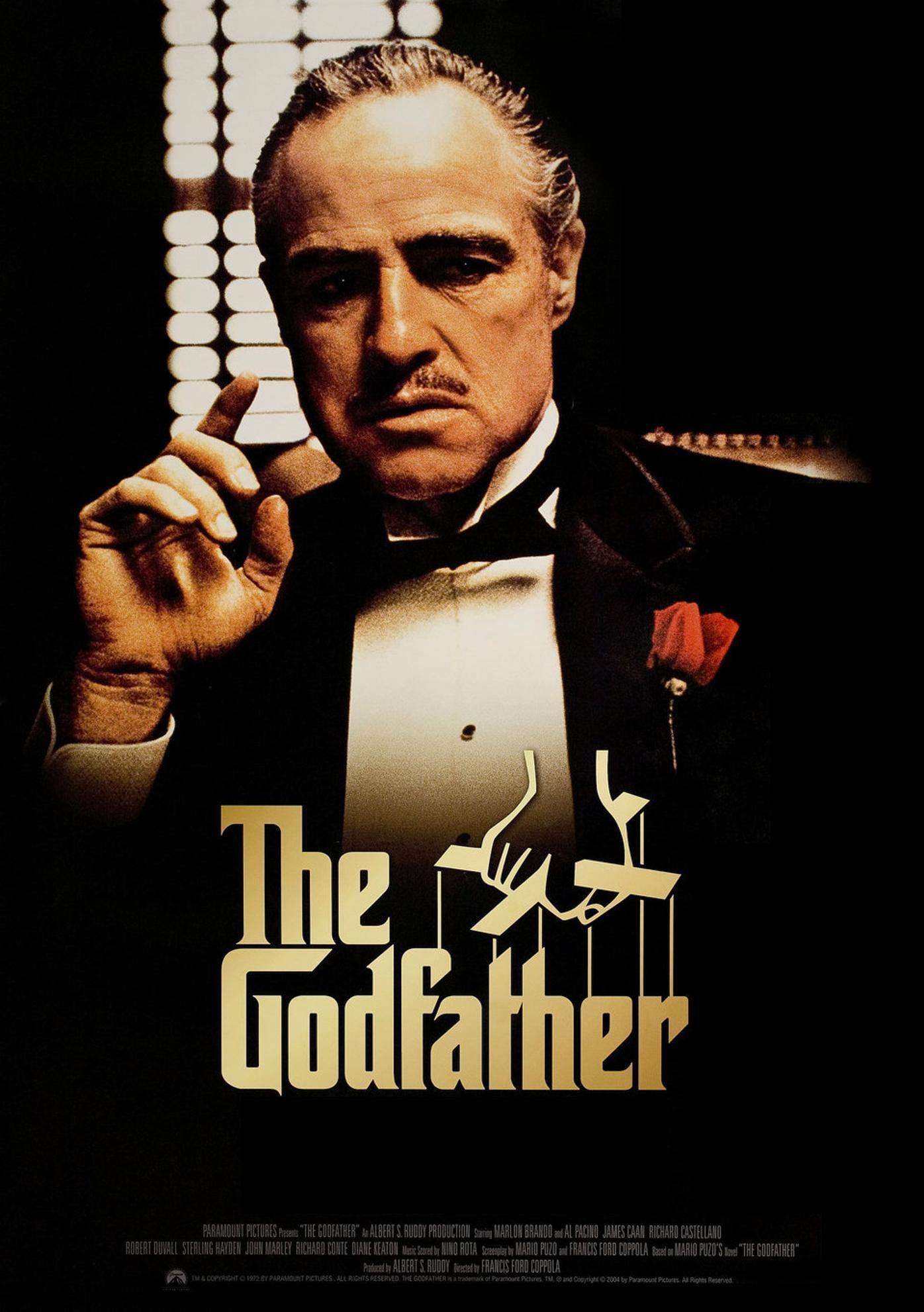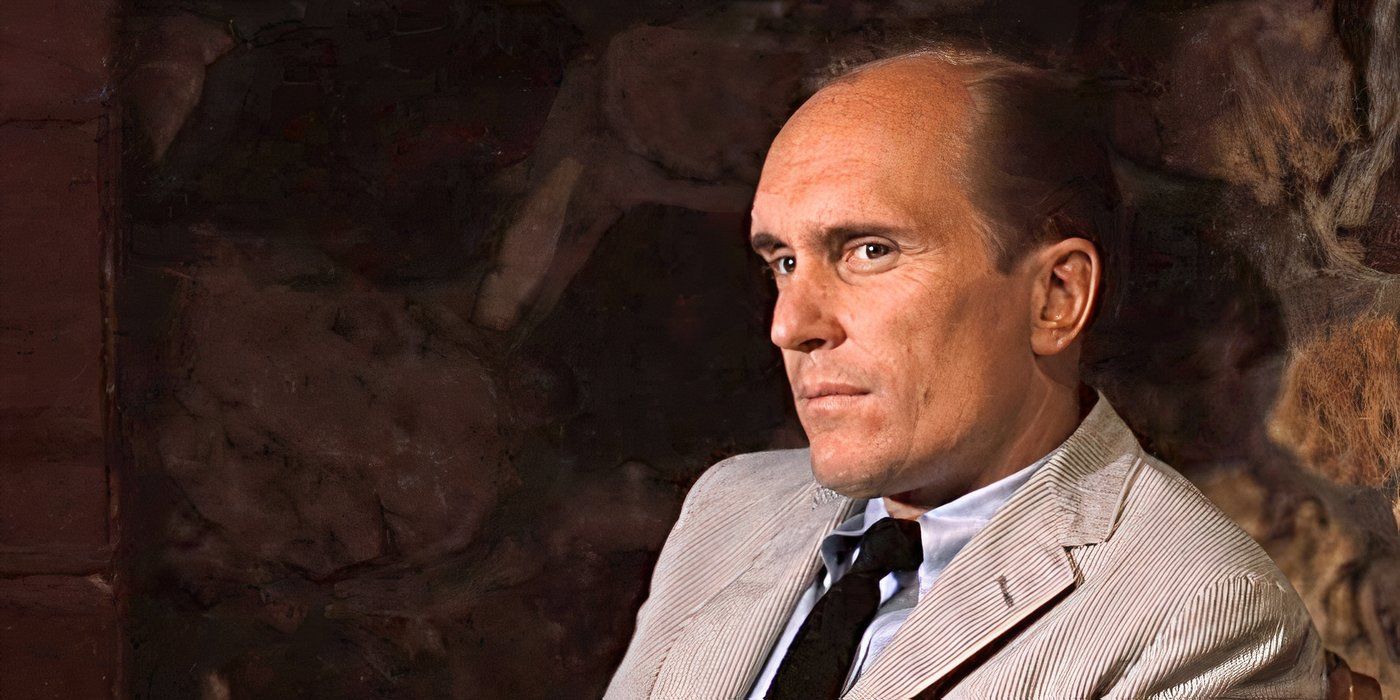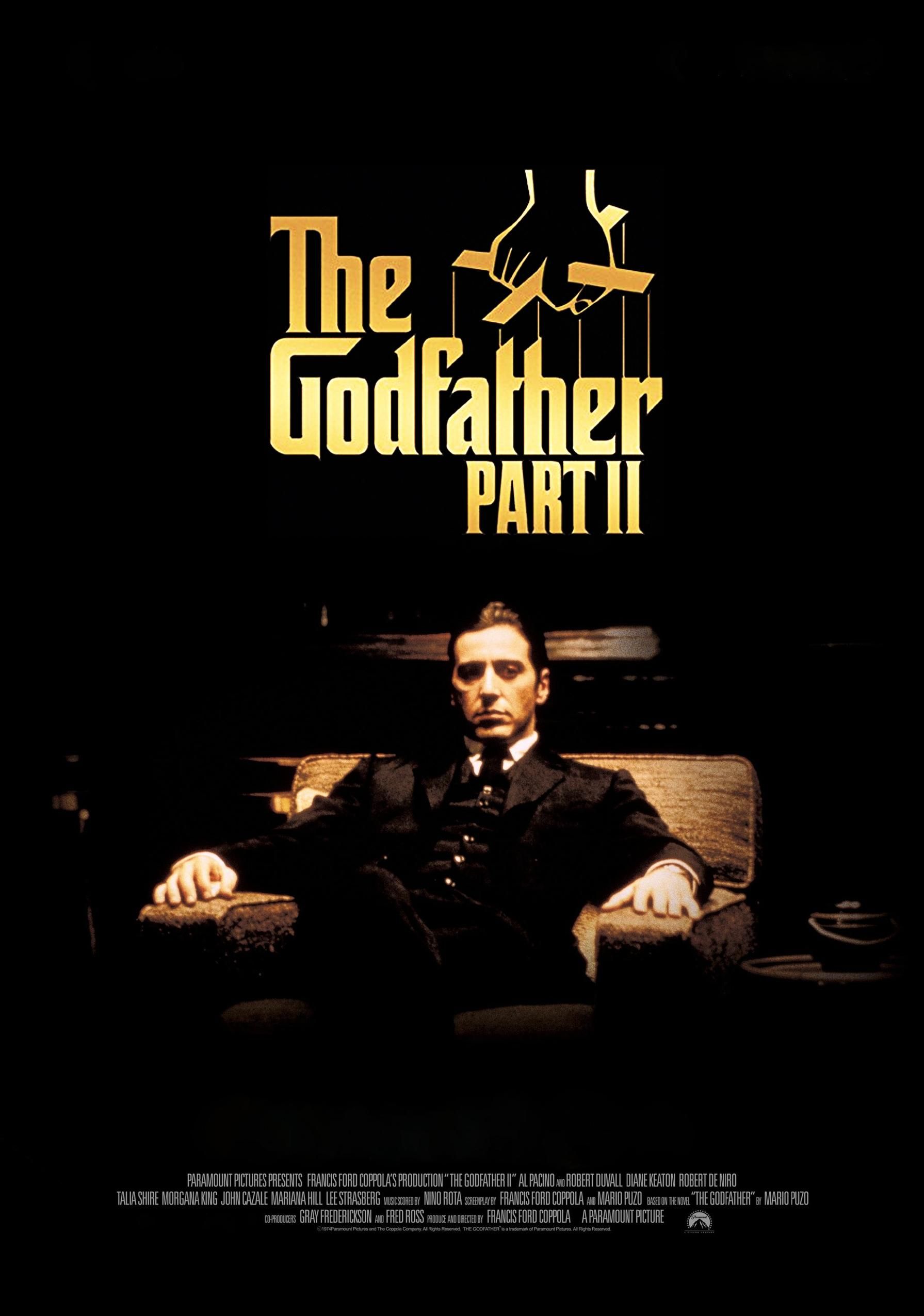Robert Duvall is hands down one of the greatest actors ever. Working on stage, TV, and the silver screen across eight decades, he has made key contributions to some of the best productions of all time. These range from his iconic appearance in Apocalypse Now, to his quietly intense work in The Godfather, and his Oscar-winning performance as an alcoholic country singer in Tender Mercies. Duvall continues to act, most recently appearing in 2022's The Pale Blue Eye.
Duvall is versatile, and excellent at playing both the good-hearted everyman and the menacing villain (though loud, angry bullies might be his specialty). He can be larger-than-life, but his performances are always rooted in real emotion and psychological depth. This makes Duvall one of the all-time best chroniclers of American masculinity. From The Great Santini to The Apostle, these are his most timeless performances.
10 'The Great Santini' (1979)
Director: Lewis John Carlino
This family drama centers on the fraught relationship between Ben Meechum (Michael O'Keefe) and his competitive, authoritarian father Bull (Duvall). Bull is a Marine Corps fighter pilot known by his call sign, "The Great Santini," who is stationed at a base in South Carolina. It's 1962, so Bull is now the quintessential warrior without a war. Frustrated, Bull becomes increasingly abusive towards Ben, and conflict escalates as the son tries to chart his own course free of his father's demands.
Duvall received a Best Actor Oscar nod for his work in The Great Santini, and for good reason. He plays Bull with a fantastic mix of braggadocio, cruelty, and vulnerability. Rather than being a stock character, he's three-dimensional. On the one hand, he's mean and domineering; on the other, he's principled and has high expectations of both kids and himself. His fatal flaw is his insecurity, which becomes malignant. Duvall has many fantastic scenes here, like the iconic one where Bull bounces a basketball against his son's head, repeating, "You gonna cry?"
9 'M*A*S*H' (1970)
Director: Robert Altman
Before the hit TV series, there was this masterful ensemble film by Robert Altman. A daring dark comedy, M*A*S*H revolves around a team of medical personnel at a Mobile Army Surgical Hospital during the Korean War. The characters toil away at bloody, challenging work, using humor and practical jokes to stay sane. Sometimes, their antics get uncomfortably brutal. Although the setting is Korea, the real target of M*A*S*H's irreverence is the Vietnam War, which was underway when the film was made.
The main cast includes Donald Sutherland, Tom Skerritt, Elliott Gould, Sally Kellerman, and Duvall as Major Frank Burns, a self-righteous and incompetent surgeon. He's a loathsome figure who becomes the target of many pranks and much mockery. Nevertheless, Duvall adds depth to Burns, and there are times when the character is almost sympathetic — almost. Duvall's standout moment in M*A*S*H is the scene where another character goads him into a furious outburst which lands him in a psychiatric hospital.
8 'Sling Blade' (1996)
Director: Billy Bob Thornton
"I reckon I got no reason to kill no one. Uh, huh." Written, directed, and starring Billy Bob Thorton, Sling Blade centers on Karl Childers, a mentally challenged man with a troubled past who is released from a psychiatric hospital after committing a heinous crime as a child. He returns to the small Southern town he left behind, where he befriends a young boy named Frank Wheatley (Lucas Black) and becomes entangled in the lives of those around him.
Duvall plays Karl's father, Frank, who was a tyrant when Karl was a boy but is now an angry, isolated man dealing with dementia. Although he makes only a limited appearance, he's one of Sling Blade's highlights. The casting is clever, drawing on Duvall's association with powerful, hypermasculine characters. Duvall is usually strong and energetic, so it's a shock to see him looking so bitter and confused. He portrays this broken husk of a man with realism and intensity; it's one of his very darkest performances.
7 'Network' (1976)
Director: Sidney Lumet
Network is Sidney Lumet's hilarious, scathing send-up of the news media, starring Peter Finch as Howard Beale, a veteran news anchor who, after a sudden outburst on air, becomes a ratings sensation for his unpredictable rants. Rather than pulling Beale off the air, the network sees him as a way of making windfall profits. Duvall has a supporting role as Frank Hackett, a bullying boss at the station whose quest for ratings leads him to violent extremes.
If anything, Network's satire of media sensationalism and the commodification of news is even more relevant now than it was nearly 50 years ago. Paddy Chayefsky's fantastic script gives the cast a lot to work with. Here, Duvall is delightfully despicable and abrasive, embodying the amoral, hard-charging corporate executive. He has plenty of great moments. For example, during a board meeting, when murder is suggested, he insists he wants to "hear everybody's thoughts on this."
6 'To Kill a Mockingbird' (1962)
Director: Robert Mulligan
After a string of successful stage performances, Duvall made his film debut in To Kill a Mockingbird as Arthur "Boo" Radley, the reclusive, oddball neighbor who plays a pivotal role in the film's last act. He's joined by Gregory Peck in his defining performance as Atticus Finch, a principled lawyer who defends a Black man, Tom Robinson (Brock Peters), accused of raping a white woman. Mary Badham plays his young daughter Scout, through whose eyes the story unfolds.
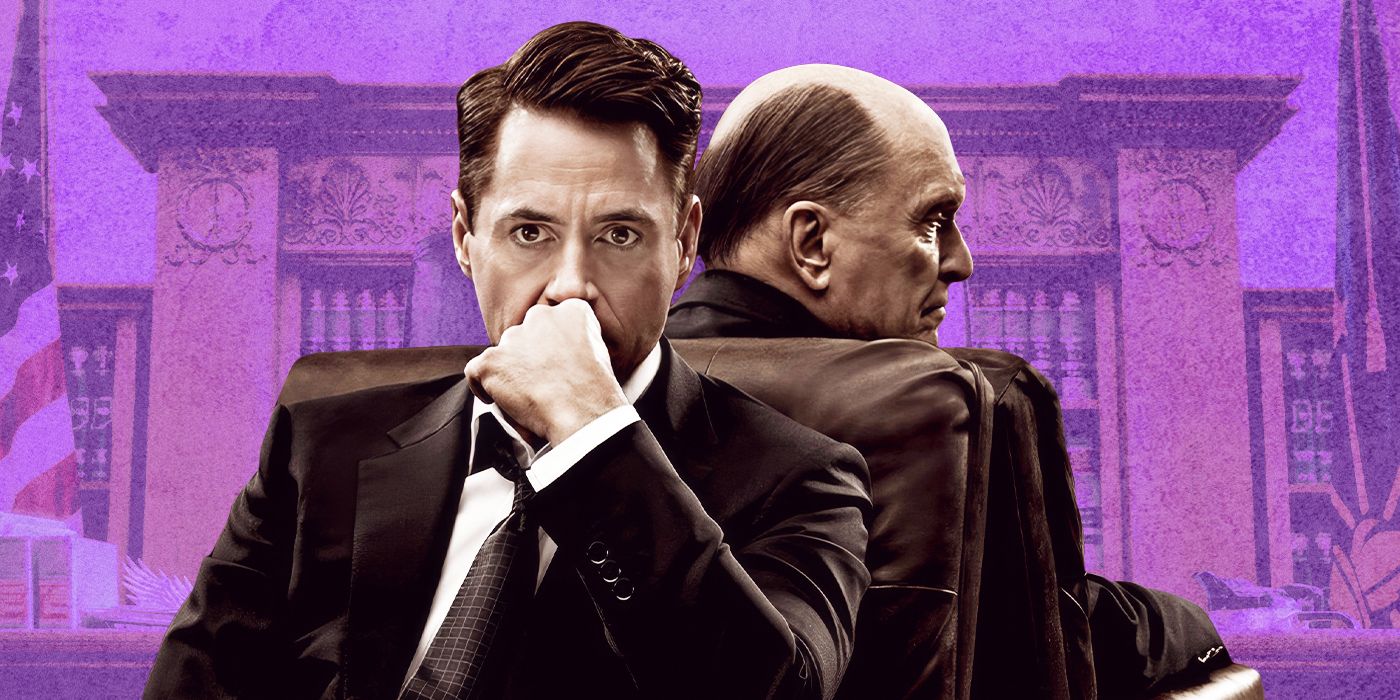
Robert Downey Jr.’s ‘The Judge’ Is Best When It’s Not in the Courtroom
Oscar-winners Robert Downey Jr. and Robert Duvall are at their peak in this legal drama.
Duvall is on-screen for just a few minutes, but he is spellbinding as Boo Radley, conveying so much with just body language and his eyes. In fact, he doesn't speak at all in the movie (he shot one line, but it never made the final cut). This is fitting for a character who is shrouded in mystery, more of a symbol than a person. Despite his monstrous reputation, Boo is shy, meek, and almost childishly innocent, which is something we don't often see from Duvall.
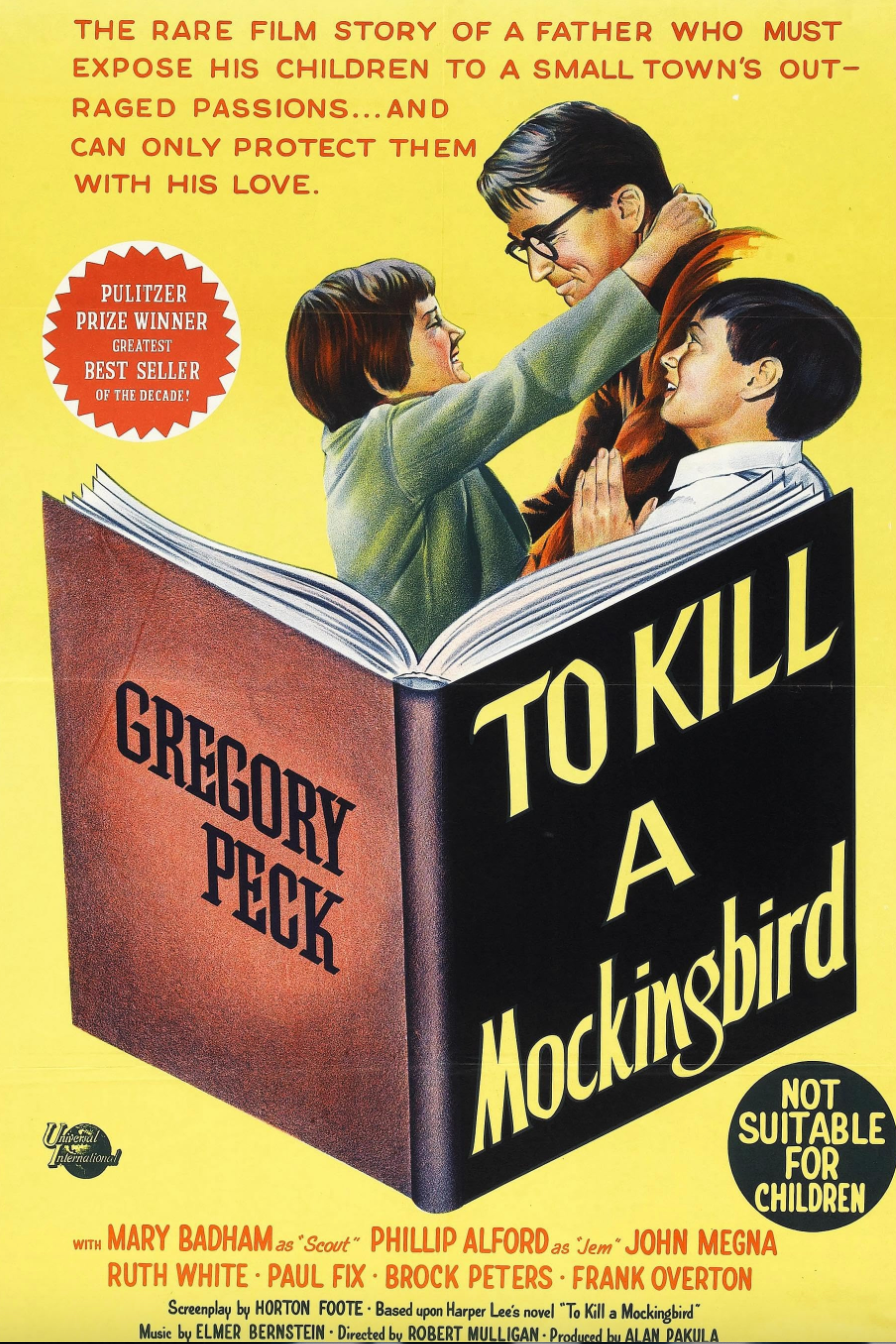
To Kill A Mockingbird
Atticus Finch, a widowed lawyer in Depression-era Alabama, defends a Black man against an undeserved rape charge, and tries to educate his young children against prejudice.
- Cast
- gregory peck , John Megna , Frank Overton , Rosemary Murphy , Ruth White , Brock Peters
- Runtime
- 129 minutes
- Director
- Robert Mulligan
- Main Genre
- Crime
- Writers
- Harper Lee , Horton Foote
5 'The Apostle' (1997)
Director: Robert Duvall
The Apostle was Duvall's passion project, which he also wrote and directed. He initially wrote the script in 1984 but struggled for over a decade to get it produced. He leads the project as Sonny Dewey, a charismatic Pentecostal preacher from Texas whose life takes a drastic turn when he discovers his wife's (Farrah Fawcett) infidelity. Fueled by a volatile mix of passion and anger, Sonny commits a violent act and is forced to go on the run. Reinventing himself as "The Apostle E.F.," he starts a new church in a small Louisiana town, where he seeks spiritual redemption and attempts to rebuild his fractured life.
The Apostle is a complex study of guilt and faith and a piercing examination of evangelicalism. It succeeds thanks to amazing performances across the board. Duvall is the star, however, turning in one of his most vivid portraits of a flawed but fundamentally good man in a tough situation. The central question of this movie is whether this preacher can save his own soul.
4 'Tender Mercies' (1983)
Director: Bruce Beresford
"See, I don't trust happiness. I never did; I never will." Tender Mercies begins with washed-up country singer Mac Sledge (Duvall) waking up in a run-down motel, haunted by a troubled past of alcoholism and broken relationships. Seeking redemption, he finds solace and a chance at a new life when he meets Rosa Lee (Tess Harper), a widow with a young son.
Mac becomes a part of their lives, helping to rebuild a dilapidated farmhouse and finding a sense of belonging in their small Texas town. Through these characters, the film delves into themes of rebirth, family, and grace. This is Duvall at his most restrained and understated, and his portrayal of Max is a masterclass in subtlety. He's a man full of pain, but where other Duvall characters convey their heartache through rants and violence, Mac's is revealed through his silence. He's reflective, struggling to make sense of both the tragedy and good fortune in his life.
3 'Apocalypse Now' (1979)
Director: Francis Ford Coppola
"I love the smell of napalm in the morning." Duvall's most famous performance may be his appearance in Francis Ford Coppola's Vietnam War epic, Apocalypse Now, as Lieutenant Colonel Bill Kilgore, a charismatic and unflinchingly fearless helicopter squadron commander. He's the archetypal gung-ho soldier with a cavalier attitude towards the horrors of war, perhaps because any other way of dealing with his experiences would be too painful.
Duvall prepared extensively for the role, including speaking to many people in the military about their experiences. He walks a knife edge between believable and over-the-top, with too many great scenes to count. Chief among them is the legendary helicopter attack to the sound of "Ride of the Valkyries", which Kilgore only agrees to because it will give them control of a beach said to be great for surfing. The character is entertaining but also frightening: he's utterly hollow and unfeeling.
2 'The Godfather' (1972)
Director: Francis Ford Coppola
In the Godfather movies, Duvall plays Tom Hagen, the informally adopted son of mafia boss Vito Corleone (Marlon Brando). He's one of the franchise's most interesting characters, as he inhabits the intersection of multiple worlds. He's something of an outsider, being neither a blood family member nor Italian (his background is German-Irish), but he holds a senior position in the organization, serving as consigliere and the family's lawyer.
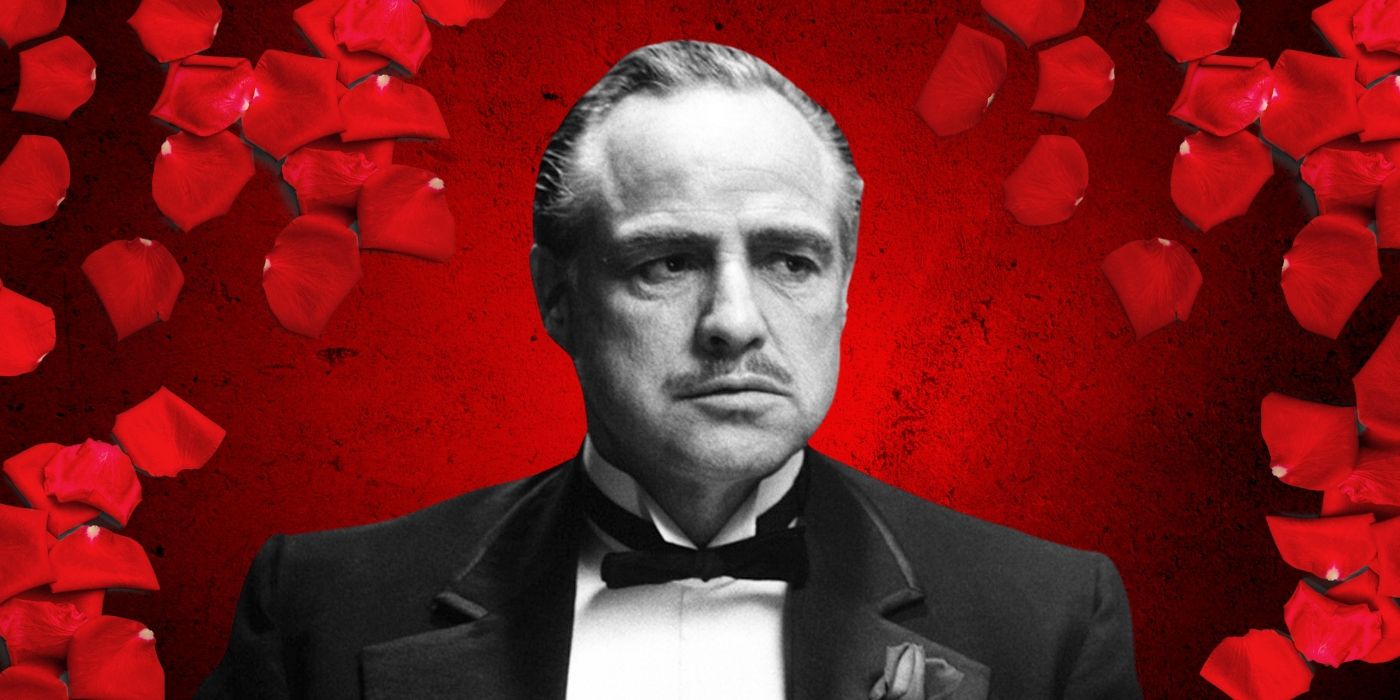
This Iconic Moment in ‘The Godfather’ Was Never Supposed to Happen
Sometimes the best moments are improvised, even if the scene is almost ruined.
Notably, Hagen is the voice of reason, the complete inverse of Vito's hotheaded son Sonny (James Caan). He has a sharp mind and provides counsel to both Vito and Michael (Al Pacino). Duvall aces Hagen's calm, strategic demeanor; one could watch a whole film of him mediating conflicts and debating with crooks. He's also coldblooded, overseeing multiple executions with calm detachment. Nevertheless, Michael holds Hagen at arm's length, not even trusting him with foreknowledge of the pivotal assassination at the film's climax.
1 'The Godfather Part II' (1974)
Director: Francis Ford Coppola
The Godfather: Part II film jumps back and forth between Vito's early life and Michael's reign as don of the Corleone mafia. Duvall returns as Hagen, who is still Michael's lawyer but whose influence has been significantly curtailed. After a series of betrayals, Michael has ceased trusting anyone, telling Hagen up front that he will not share everything with him anymore. Despite this, Michael makes Hagen the acting don while he is away, leading to some of Duvall's best scenes.
These include Hagen's meeting with Senator Pat Geary (G.D. Spradlin), one of Michael's opponents, and, later, Hagen's defense of Michael during the Senate hearings into mafia activity. As Michael grows more paranoid and brutal, Hagen confronts him about his behavior, and Duvall and Pacino have some fantastic, tense moments together. It's heartrending to see the breakdown of their relationship. They go from being brothers to little more than a master and servant, with Hagen asserting his loyalty in the face of Michael's subtle threats. Overall, Duvall makes a crucial contribution to one of the greatest cinematic worlds of all time.


